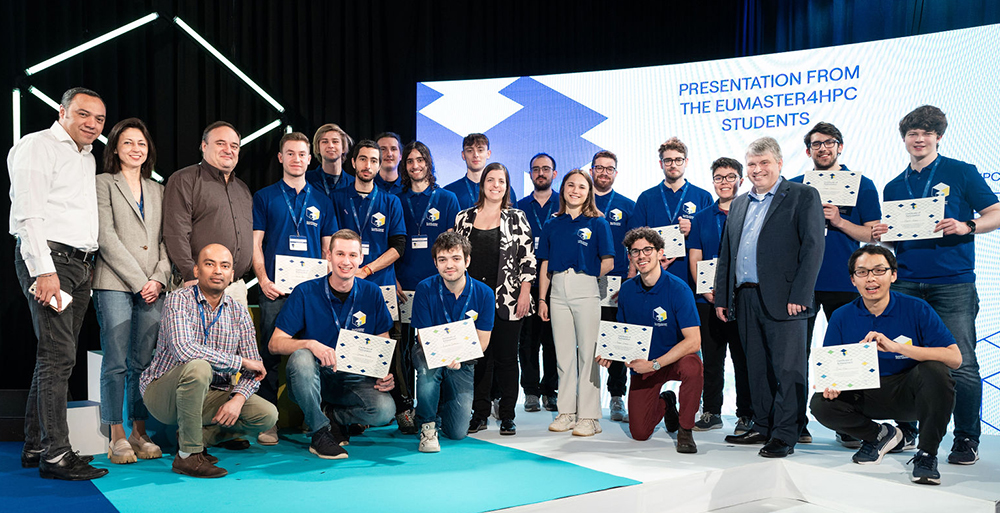EuroHPC Summit 2023
Dirk Pleiter, CST, KTH
For many years the European supercomputing community, which had organised itself in PRACE, met regularly at the PRACEdays conferences. After an interim format called the European HPC Summit Week, the EuroHPC Summit was established with the EuroHPC Joint Undertaking as the organiser. The most recent EuroHPC Summit was held in March 2023 and these summit conferences will continue to take place on an annual basis in the country of the EU presidency. This year it was Sweden’s turn to welcome Europe’s supercomputing community in Gothenburg.
The plenary programme of the EuroHPC Summit 2023 had a strong focus on the state of the EuroHPC infrastructure. Most of the supercomputers resulting from the first round of EuroHPC investments are now operational and available for high-performance computing (HPC) users. Two systems, namely LUMI in Finland and Leonardo in Italy, made it to leading positions on the TOP500 list of the world’s fastest supercomputers. The Research Centre Jülich presented the status of preparations for the next milestone, namely the deployment of the first EuroHPC exascale system. Another important pillar of EuroHPC is research and innovation efforts supporting the European Commission’s (EC) strategy on digital sovereignty. During the plenary programme, the status of a major initiative aimed at developing European processors and compute accelerators based on the RISC-V instruction set architecture was discussed. Another focus topic was the status of the implementation of the European quantum computing strategy.
The plenary programme on the opening day offered the opportunity to present a Swedish perspective on HPC and quantum computing. Here, the presentation of the new National Academic Infrastructure for Supercomputing in Sweden (NAISS) and the work of the Wallenberg Centre for Quantum Technology (WACQT) aligned well with the focus of the conference. The closing day provided the opportunity to put a new educational endeavour funded by EuroHPC in the spotlight, namely the education of Masters in HPC students through the EUMaster4HPC project. KTH is part of that project.

Twelve parallel sessions allowed this very diverse and broad community to present many new results and discuss upcoming challenges. Two examples were the sessions on upcoming exascale applications and efforts towards enabling digital twins on HPC infrastructures. This allowed KTH researchers to discuss the work within the new centre of excellence Plasma-PEPSC, where applications for simulating plasmas are prepared for upcoming exascale systems, as well as the BioDT project. The latter works with the biodiversity community on realising digital twins, which is a rather new way of using HPC.
With about 500 on-site attendees, which is a record number of participants, the event demonstrated the growing interest in supercomputing in Europe. Overall it was considered a great success. This sets high expectations for next year’s EuroHPC Summit, which will take place in Antwerp. You can read more about this year’s summit and projects here:
- EuroHPC Summit programme and slides www.eurohpcsummit.eu
- EUMaster4HPC project eumaster4hpc.uni.lu
- BioDT project biodt.eu
- PLASMA-PEPSC project plasma-pepsc.eu
